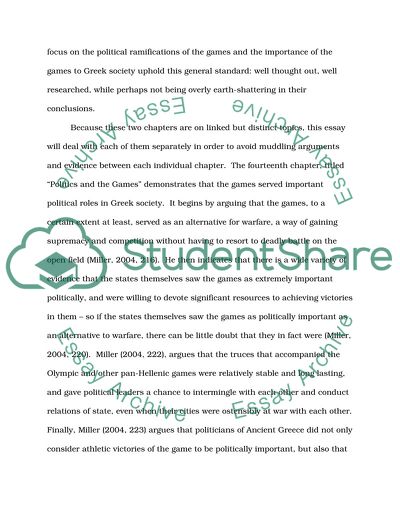Cite this document
(Critical Analysis of Stephen G. Millers Ancient Greek Athletics Essay, n.d.)
Critical Analysis of Stephen G. Millers Ancient Greek Athletics Essay. https://studentshare.org/literature/1769202-write-a-critical-reviewanalysis-of-chapter-14-15-of-the-book-ancient-greek-athletics-by-steven-g-miller
Critical Analysis of Stephen G. Millers Ancient Greek Athletics Essay. https://studentshare.org/literature/1769202-write-a-critical-reviewanalysis-of-chapter-14-15-of-the-book-ancient-greek-athletics-by-steven-g-miller
(Critical Analysis of Stephen G. Millers Ancient Greek Athletics Essay)
Critical Analysis of Stephen G. Millers Ancient Greek Athletics Essay. https://studentshare.org/literature/1769202-write-a-critical-reviewanalysis-of-chapter-14-15-of-the-book-ancient-greek-athletics-by-steven-g-miller.
Critical Analysis of Stephen G. Millers Ancient Greek Athletics Essay. https://studentshare.org/literature/1769202-write-a-critical-reviewanalysis-of-chapter-14-15-of-the-book-ancient-greek-athletics-by-steven-g-miller.
“Critical Analysis of Stephen G. Millers Ancient Greek Athletics Essay”. https://studentshare.org/literature/1769202-write-a-critical-reviewanalysis-of-chapter-14-15-of-the-book-ancient-greek-athletics-by-steven-g-miller.


